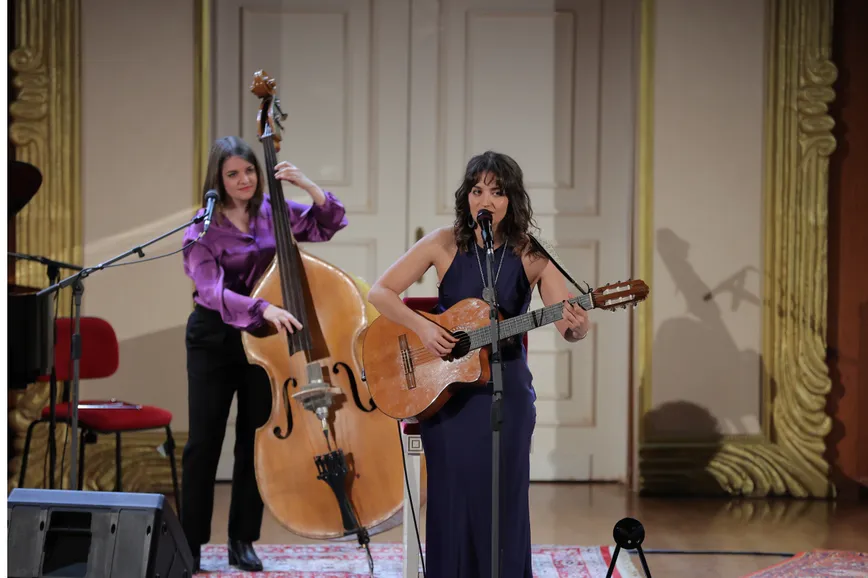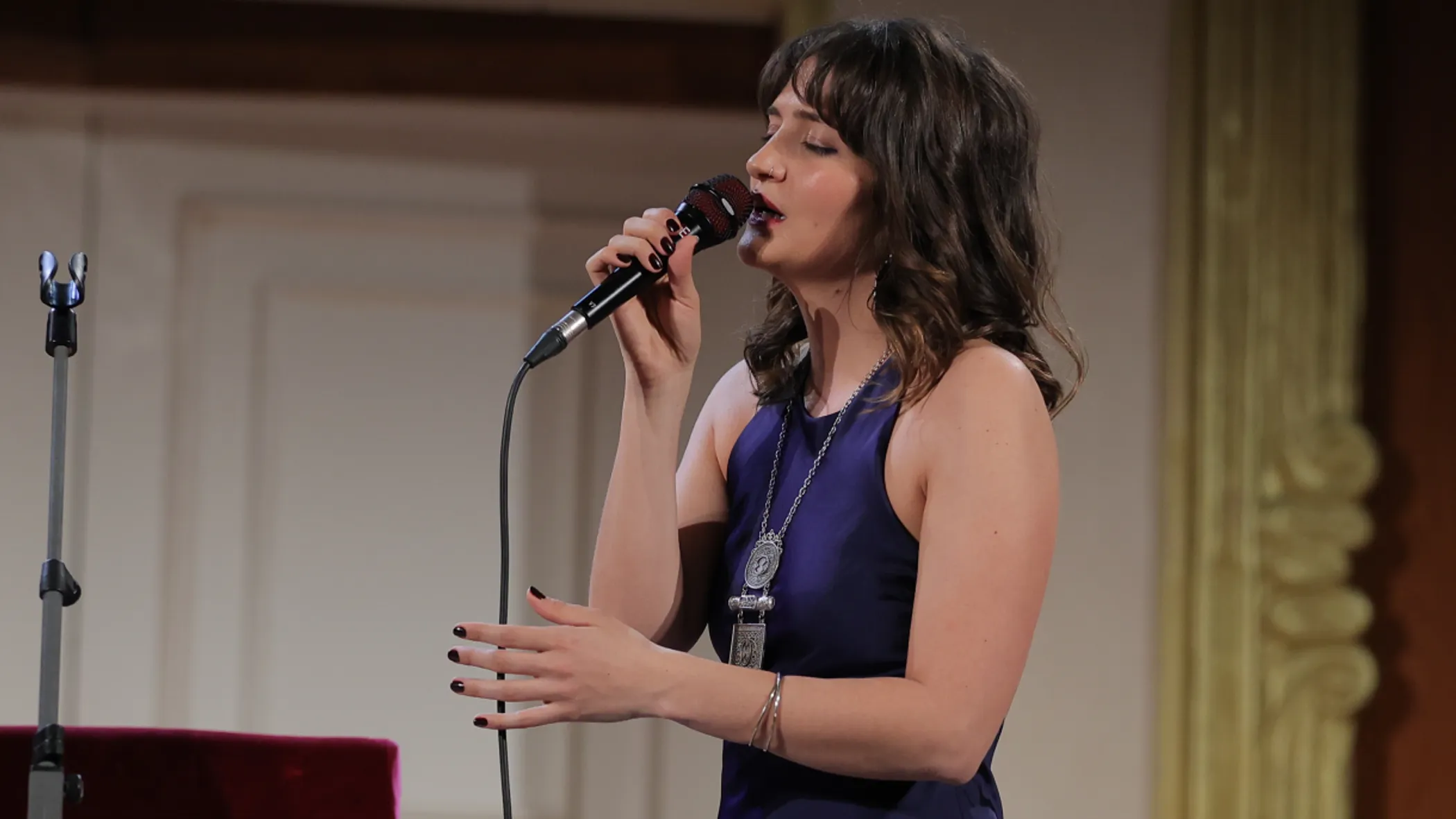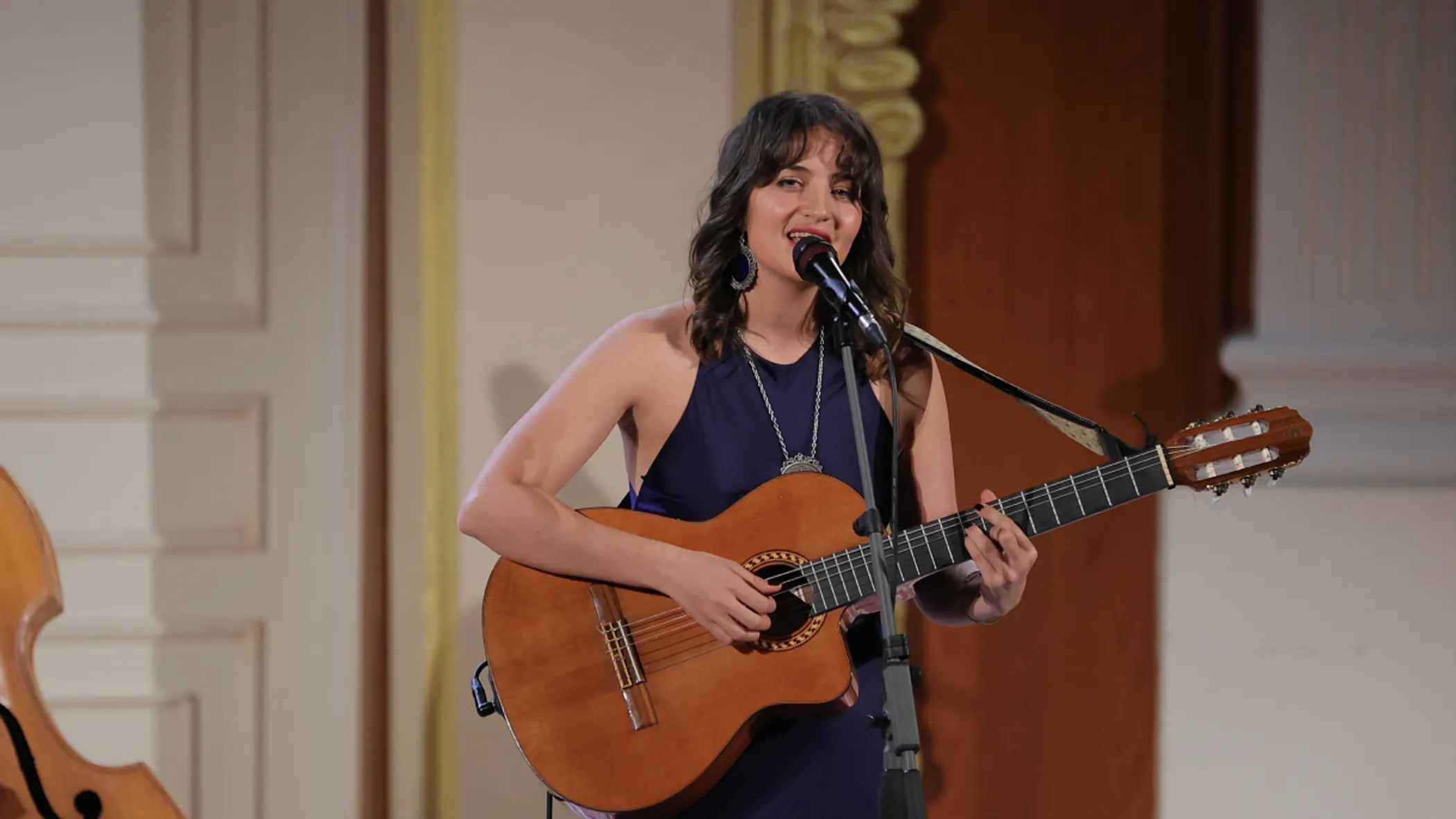On April 16, a rising French jazz star Gabi Hartmann performed at Astana Opera as part of the Francophonie Spring Festival (Festival “Printemps de la Francophonie”) in Kazakhstan.
Gabi Hartmann’s music is shaped by her interest in studying and discovering sounds and cultures from around the world. She sings in French, English, Portuguese and Arabic performing at jazz clubs and venues in Turkey, Japan, Belgium, England, and other countries. Influenced by jazz, folk, bossa nova, and other genres, Hartmann has crafted a unique music palette.
In her set at Astana Opera, Gabi and her band mainly performed songs from her debut self-titled album recorded between Paris and New York last year.
QazMonitor talked to Gabi before the gig about the themes of her 2024 EP Little Song Lines, her love for ethnic music, and the importance of improvisation in jazz.
What themes does your latest EP explore compared to your debut album?
It’s mainly acoustic songs. And the idea of that EP was to give to the audience that is listening to me or doesn't know me, something more intimate, something more raw and pure with just the voice and the guitar. And themes that I explore are mainly [those of] songs from my old album, actually. So it's kind of an interlude between the first album and the new album that is not yet released, but I'm working on it.
Speaking of raw sound, is it something that your listeners can expect in your second album?
It's a surprise. I won’t really tell because I don't know yet how it's gonna sound. It's always the surprise of recording in the studio.
Your latest EP features a cover of “Is Anything Wrong?” by singer-songwriter Lhasa de Sela. Why did you pick this particular song?
Lhasa de Sela is a singer from Canada. So, she's half Mexican, half Canadian, and she was very famous in France. She's between different cultures and I felt very connected to that and the fact that she's sort of a folk singer but also includes blues and jazz. And her music connected me even more. And [I picked] that song in particular because I think the lyrics really touch me. I feel like it really talks to me personally and it says, “Is anything wrong? Will time make us wise?”[...] It's a good question, and I still don't know what to say about it.
As a person who studied ethnomusicology, did you have a chance to listen to some of Kazakh ethno or folk music?
I did study ethnomusicology, but I was more focused on African music at that time and Latin American music. So I didn't have a chance to [learn] about Kazakhstan music. But I discovered some songs from Asia, like Indonesian music, where they play beautiful, traditional instruments. But I had the chance to come here and listen to a kobyz player [Raushan Orazbaeva — QM], a very great player [performing] in the same room where I'm going to play tonight. And I was very impressed. I really liked it.
I know a bit of Turkish music, and I found some similarities in the sound and the shape of the dombra instruments [Turkish saz and Kazakh dombra — QM]. So I really like traditional music. I hope I will listen more and discover more.
It's very important for me to have improvisation in my music because jazz is mainly about being free and it's the language of freedom and improvisation between musicians. So the musicians that are playing with me tonight will improvise a lot inside the songs.
Gabi Hartmann will perform in Almaty on April 20 at Kazakh State Academic Philharmonic.


